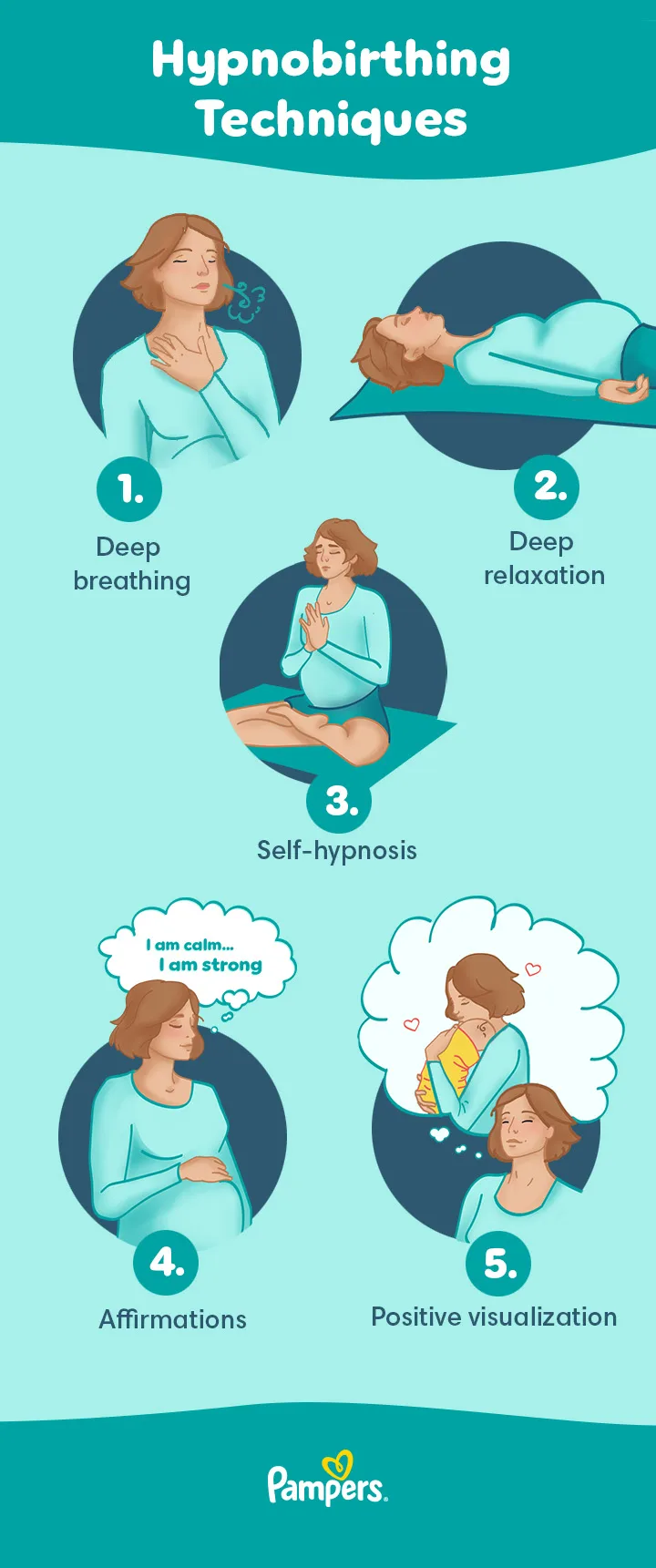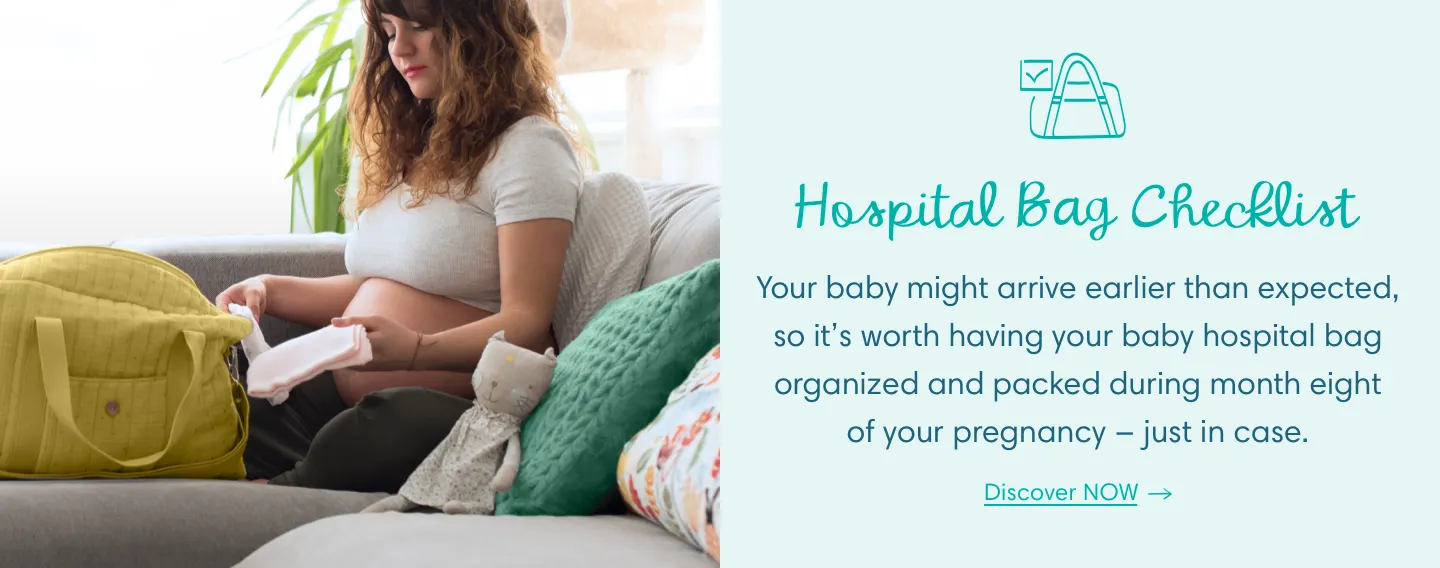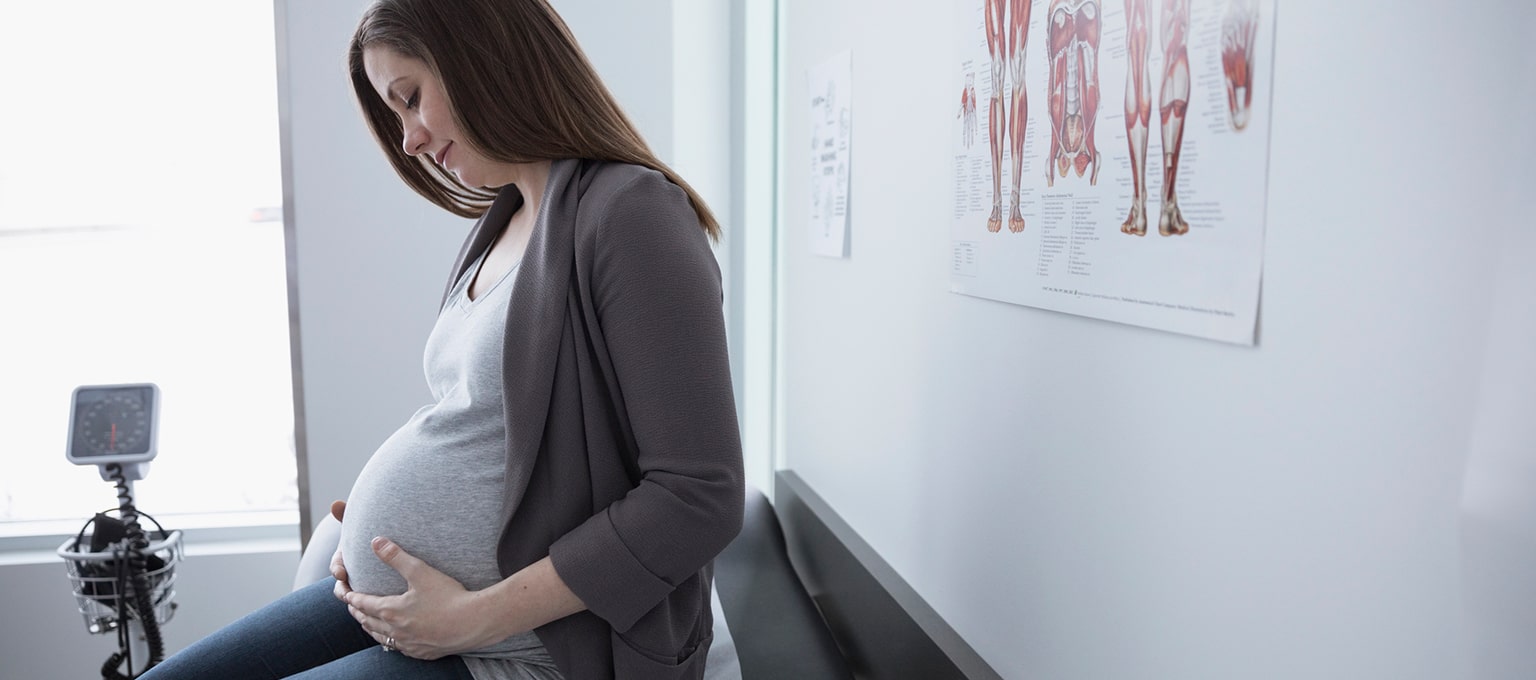
All About Hypnobirthing
You may have heard about hypnobirthing, but what is it? As more and more pregnant people flock to antenatal hypnobirthing classes that are run or subsidised by the NHS Trust, you may have questions about hypnobirthing and whether it’s right for you. Does it work and does it relieve those birthing pains? Read on to learn all about hypnobirthing, its benefits for you, your partner and your baby, and more.
What Is Hypnobirthing?
Despite the name, hypnobirthing doesn’t mean you have someone dangling a pocket watch in front of your face when you go into labour. Hypnobirthing is actually a birth education programme that uses practical ways to make your birth better. It teaches you various tools, like self-hypnosis, controlled breathing techniques, and relaxation exercises, that can help adapt your birth experience so it’s a peaceful and calm one.
How Does Hypnobirthing Work?
When you are completely relaxed, free from fear and tension, your uterine muscles can work as nature intended, helping you give birth more easily. Without fear and stress, your body can produce more endorphins – a natural relaxant and pain killer – and replace the stress hormones that can cause your muscles to tense up and tighten, which can be the main source of pain.
Hypnobirthing Techniques
Hypnobirthing involves various techniques and practices that work together to help empower and prepare you for birth. Here are the key techniques:
Hypnobirthing Breathing Techniques
Specific breathing patterns practised during various stages of labour can aid in relaxation, oxygenate the body, reduce your perception of pain, and keep you and your baby calm. An example of a simple breathing technique could be breathing deeply and slowly in through your nose (for a count of 4) and slowly out through your mouth (for a slightly longer count) while relaxing your jaw and muscles of the body.
Deep Relaxation
Deep relaxation utilises deep breathing and visualization techniques to relax the body and mind. They can help reduce stress hormones in the body, making childbirth feel less painful and more manageable.
Self-Hypnosis
Self-hypnosis involves entering a state of focused concentration, where you’re more receptive to positive suggestions and affirmations. It may help enable better control over the body’s response and perception to pain, fostering a more positive birth experience.
Affirmations and Positive Visualisation
Regularly repeating positive affirmations about childbirth and visualising a positive birth experience may help create a positive mindset, reducing fear and anxiety associated with childbirth.
Does Hypnobirthing Relieve Pain?
Hypnobirthing does not guarantee pain relief, since there are still many factors in childbirth responsible for pain that lie outside your control. Although hypnobirthing can decrease the need for conventional pain relief, it only reduces your perception of the pain.
What Are the Advantages of Hypnobirthing?
Some of the other benefits you get from hypnobirthing are that it can also shorten the first (when your cervix starts to gradually open up) and second (when the cervix is fully dilated) stages of labour and reduce the incidence of postnatal depression.
Hypnobirthing may also help increase your confidence during labour and childbirth, reducing anxiety and lowering your perception of pain.
Furthermore, hypnobirthing can help your baby experience a calm and gentle birth. This reduces the likelihood of your baby becoming distressed. It also creates a more integral role for your partner, which can enrich and deepen your relationship and make your partner feel more included during labour.
What Are the Disadvantages of Hypnobirthing?
Hypnobirthing has gained popularity as a natural childbirth technique, but it’s important to consider its potential drawbacks as well. There may be a gap between your expectations and the actual birth experience, potentially leading to disappointment if hypnobirthing techniques don’t work as hoped.
Learning hypnobirthing techniques during pregnancy requires time and regular practice. It’s important to note that these techniques might not be suitable for everyone, and it all depends on your personal preferences. Therefore, it’s recommended to research and explore different practitioners or hypnobirthing classes in your area.
The NHS may offer some hypnobirthing classes for pregnant people free of charge; however, some of these classes may incur fees. It’s a good idea to check with your midwife or doctor what is available to you.
Is Hypnobirthing Safe?
Yes. Despite the name, you won’t be in a trance or fall asleep. You will be aware of everything happening around you and you will be totally relaxed and in control. However, do note that hypnobirthing does not prevent complications.
How Can You Learn About Hypnobirthing?
Ask your midwife about hypnobirthing classes or workshops, since the NHS is offering various courses around the country. These can help you and your partner learn about how hypnobirthing works in more detail, what happens to your body during labour, what your birth partner can do to help, and what antenatal preparations you can make, among other things. You will usually get supplemental material for self-study at courses and workshops, such as additional audio material.
If you can't get to a course or you prefer to self-study, then you have other options, like CDs, DVDs, apps, podcasts and books covering hypnobirthing techniques.
When to Start Hypnobirthing Training?
The ideal time to book a course is after your 20-week scan, but it also depends on the availability of the classes in your area. For example, some NHS-run hypnobirthing courses may only start from 28 weeks
Sessions usually last around two and a half hours per session, with four to five classes over the period of a month.
FAQS AT A GLANCE
Hypnobirthing is a childbirth method that combines deep breathing, relaxation, visualization and self-hypnosis techniques. It aims to help you feel confident and calm, encourage easier labour with less need for intervention or pain relief, and empower you for a positive birthing experience
The Bottom Line
Whether you choose to have your baby in a hospital, at a birth centre, or at home, hypnobirthing can help you have a better birth experience. No matter how your labour goes, the techniques you learn in hypnobirthing can only help, and keep you feeling in control.
Read more about Pregnancy
Related Articles
Join Pampers Club and get:
















